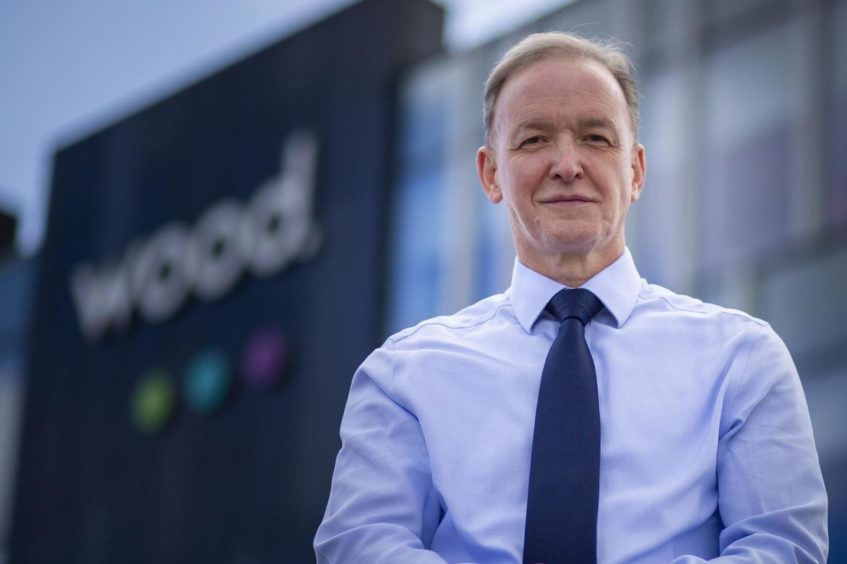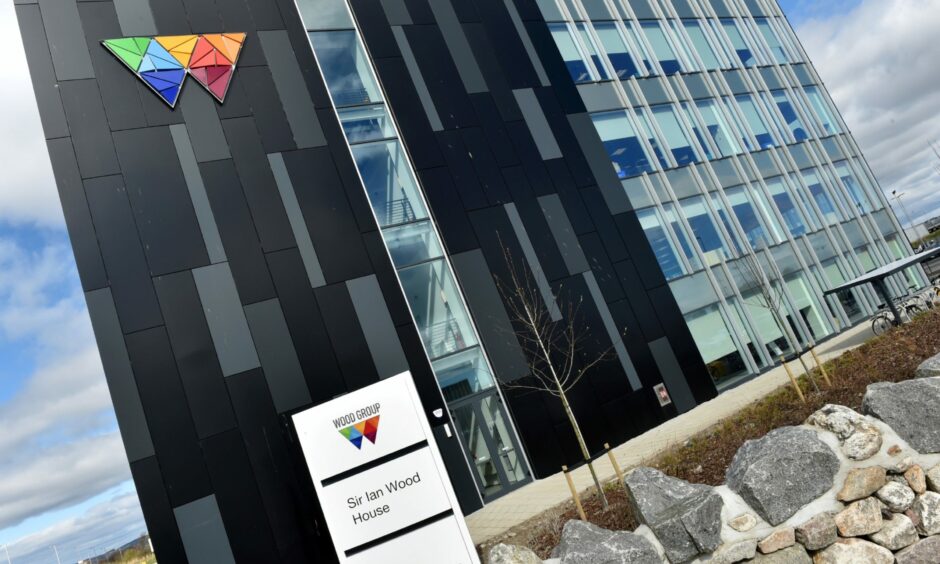
Wood chief executive Robin Watson said today (August 24) the Aberdeen firm’s conventional energy business is “stable” and its other activities gaining momentum after an “inflection point” for the group earlier this year.
He shrugged off a 14% rise in Wood’s debt between the end of last year and June 30, to just under £1.3 billion, as a “timing” issue – all to do with “adverse movements in working capital” and invoice payment dates – and said the company was growing margins and heading towards 2022 with confidence, following a mixed first half.
Mr Watson was speaking after results from the London-listed engineering and project management giant showed a big jump in profits during the first six months of 2021.
We’re quite discerning about the projects we get involved in.” Robin Watson, CEO, Wood.
Pre-tax gains came in just shy of £13.5 million, compared with profits of about £660,000 a year ago, but revenue tumbled to £2.31bn from nearly £3bn previously after Covid-19 impacted operations earlier this year.
Revenue also suffered a £54.3m impact from the sale of nuclear and industrial services businesses in Q1 2020.
Shareholders warmed to the overall performance, which Mr Watson described as “solid”, as well as the company’s upbeat trading outlook. The FTSE 250 firm’s stock settled around 0.2% lower at 233.1p after initially falling more than 5%.
Order book up 18%
Positive investor sentiment was boosted by an 18% jump in the order book, to £5.64bn, since the start of the year and growing hopes of the return of a dividend next year, but offset by market jitters over the future direction of global oil prices.
Stuart Lamont, investment manager in the Aberdeen office of wealth manager Brewin Dolphin, said: “Today’s update from Wood shows the company is on a positive path towards recovering from the impacts of Covid-19, with long-term contracts being renewed and continuing momentum for the consulting division.
“Its order book is up 18% since the turn of the year and while revenue is down 22.9%, growth looks set to be on the agenda for the next six months.
“Although there was a modest rise in debt levels, this is expected to fall in the second half as weaker projects are offset by higher margins in consulting and growth in operations.”
‘Good margins’
Wood employs around 40,000 people across operations in more than 60 countries.
Highlighting “good margins across each of our business units”, the firm’s CEO said the inflection point came in the second quarter after a “bit of a shadow from Covid” hit trading in the first three months.
Mr Watson added: “We saw some good momentum in the second quarter as investment decisions were unlocked. We’re entering a growth cycle now.”
His bullishness also reflects Wood’s progress in reducing the higher financial risk activities it inherited through its £2.2bn acquisition of Amec Foster Wheeler in 2017.
“We’re quite discerning about the projects we get involved in”, he said, adding prospects were also bolstered by an expected upswing for the group’s built environment division as a large fiscal stimulus in the US opens up new opportunities for the business.
Renewables is another target market, and Mr Watson said the recently announced £430m loan from the UK Government – the first to be delivered under a new funding scheme, the UK Export Finance “guarantee”, aimed at helping exporters through the energy transition and creating green jobs around Britain – recognised Wood’s strong environmental, social and governance credentials, as well as the firm’s “investability”.
Energy transition zone
Asked about plans for an Energy Transition Zone in Wood’s home city of Aberdeen, a spokesman for the company said: “Wood is supportive of the vision and involved in the discussions around the zone through various parties. Obviously, it aligns with the goals set out through the North Sea Transition Deal, which Wood helped to shape.”
Meanwhile, Mr Watson said he was delighted to be joining the board of the Institute of Directors – a role in which he could play a key part in efforts to bring about an “equitable and purposeful” economic recovery following the Covid-19 pandemic.
